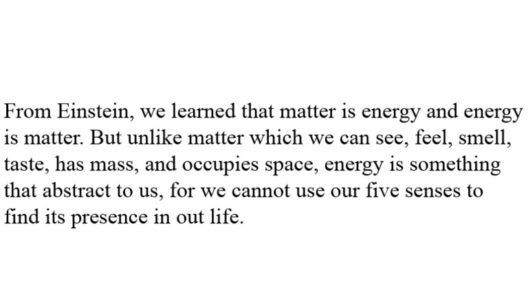As environmental consciousness rises globally, the role of the automobile in climate change mitigation has gained prominence. Car owners bear a unique responsibility and opportunity to conserve energy and reduce carbon footprints. This discussion delves into innovative strategies and practices that promote a fuel-efficient and environmentally friendly driving experience.
One pivotal aspect of conserving energy as a car owner lies in the understanding of vehicle maintenance. A well-maintained car operates more efficiently than one that is neglected. Regular oil changes, air filter replacements, and tire inflation are minor undertakings that yield remarkable dividends in fuel efficiency. An engine running smoothly consumes less fuel, while properly inflated tires reduce rolling resistance, allowing for enhanced mileage. The adherence to a stringent maintenance schedule not only prolongs the vehicle’s lifespan but also ensures optimum performance.
Another significant factor influencing fuel consumption is the choice of driving habits. Gentle acceleration and smooth braking can lead to substantial fuel savings. Abrupt maneuvers, including rapid starts and hard stops, can sap energy and inflate fuel consumption. By adopting a more measured approach to driving, such as maintaining a steady speed and utilizing cruise control on highways, drivers can observe marked improvements in fuel economy. In essence, becoming attuned to the vehicle’s dynamics offers an enlightening perspective on energy utilization.
Moreover, understanding the implications of vehicle load is indispensable. Cars are designed to perform well under specific weight parameters. Excessive load can hinder a vehicle’s efficiency, compelling the engine to work harder. Thus, removing unnecessary items from the trunk and minimizing the use of roof racks can enhance aerodynamics. This minor adjustment reduces drag and contributes significantly to conserving energy. Surprisingly, even a small reduction in weight can lead to a more efficient drive.
The psychological aspects of driving also warrant attention. Many drivers are unaware of how their mental states and distractions affect their performance and energy consumption. Distracted driving not only endangers safety but also leads to inefficient driving practices. Being present and focused on the road allows for better decision-making and smoother driving strategies. Awareness can transform driving into a more mindful endeavor, ultimately conserving energy while promoting safety.
Adapting driving routes and time commitments is another key consideration. Traffic congestion is a leading culprit in fuel wastage. The use of navigation apps can assist in avoiding gridlock, optimizing routes based on real-time traffic data. Planning ahead to integrate carpooling or public transportation on days when multiple trips are unnecessary can also effectively reduce individual driving time. Each of these choices galvanizes a collective reducing of emissions in urban settings.
In the realm of technology, advancements present unprecedented opportunities for eco-conscious driving. Familiarizing oneself with fuel economy monitoring applications and onboard diagnostics can yield insights into driving behavior and vehicle health. These intelligent systems provide feedback, enabling users to identify and rectify fuel-inefficient habits. By leveraging technology, car owners can transform their relationship with their vehicle, cultivating behaviors that foster conservation.
Additionally, exploring alternative fuels and vehicles brings an invigorating element to energy conservation. Electric vehicles (EVs) have surged in popularity, ushering in an era where conventional fuel reliance may ultimately diminish. By researching and considering the transition to hybrid or fully electric cars, individuals can vastly reduce their carbon footprints. The renewable energy market is flourishing, and many regions now boast abundant resources to charge EVs sustainably, such as wind and solar energy. Such a paradigm shift not only benefits individual owners but contributes significantly to the broader objective of combating climate change.
Furthermore, participating in community initiatives can amplify the impact of individual actions. Engaging in local environmental programs fosters collective responsibility and awareness. Car-sharing platforms and initiatives that promote electric vehicle use create profound social networks that encourage greener choices. Contributing time or resources to advocacy groups focused on sustainable transportation can lead to wider societal changes, influencing policies that support eco-friendly practices.
Another critical dimension involves understanding the benefits of tire maintenance. Tire treads and pressure play crucial roles in energy efficiency. Under-inflated tires increase friction, resulting in higher fuel consumption. Regularly checking tire pressures not only ensures safety but significantly enhances overall efficiency. Furthermore, opting for low-rolling-resistance tires can provide additional savings, particularly for those who drive frequently. These tires are explicitly designed to minimize energy loss as they roll, making them a prudent choice for the environmentally conscious driver.
Lastly, cultivating a long-term commitment to energy conservation can engender significant change. Embracing a top-down approach, car owners can advocate for themselves and their communities with intentionality. This perspective shift can transform attitudes toward vehicle ownership and energy consumption into a philosophy deeply rooted in sustainability. From the initial purchase decision to regular maintenance, every choice becomes an integral part of the conservation conversation.
In conclusion, by adopting a comprehensive approach to energy conservation, car owners can significantly lean towards a greener future. Strategies that prioritize maintenance, optimize driving habits, load management, and leveraging technology intricately weave together conscious decisions that drive sustainability. This holistic perspective not only addresses the pressing issues of climate change but also invites car owners to engage in an exciting journey towards a more environmentally responsible lifestyle, proffering the promise of a collaborative effort toward a healthier planet.








